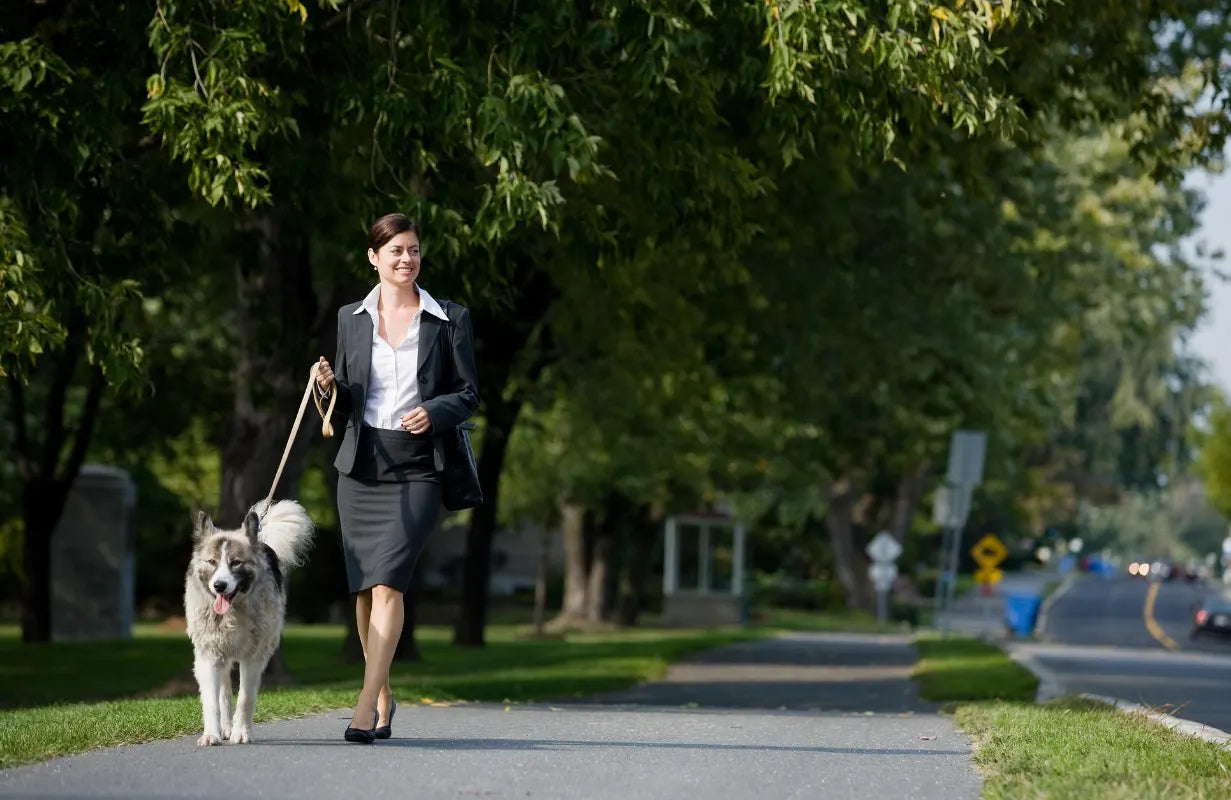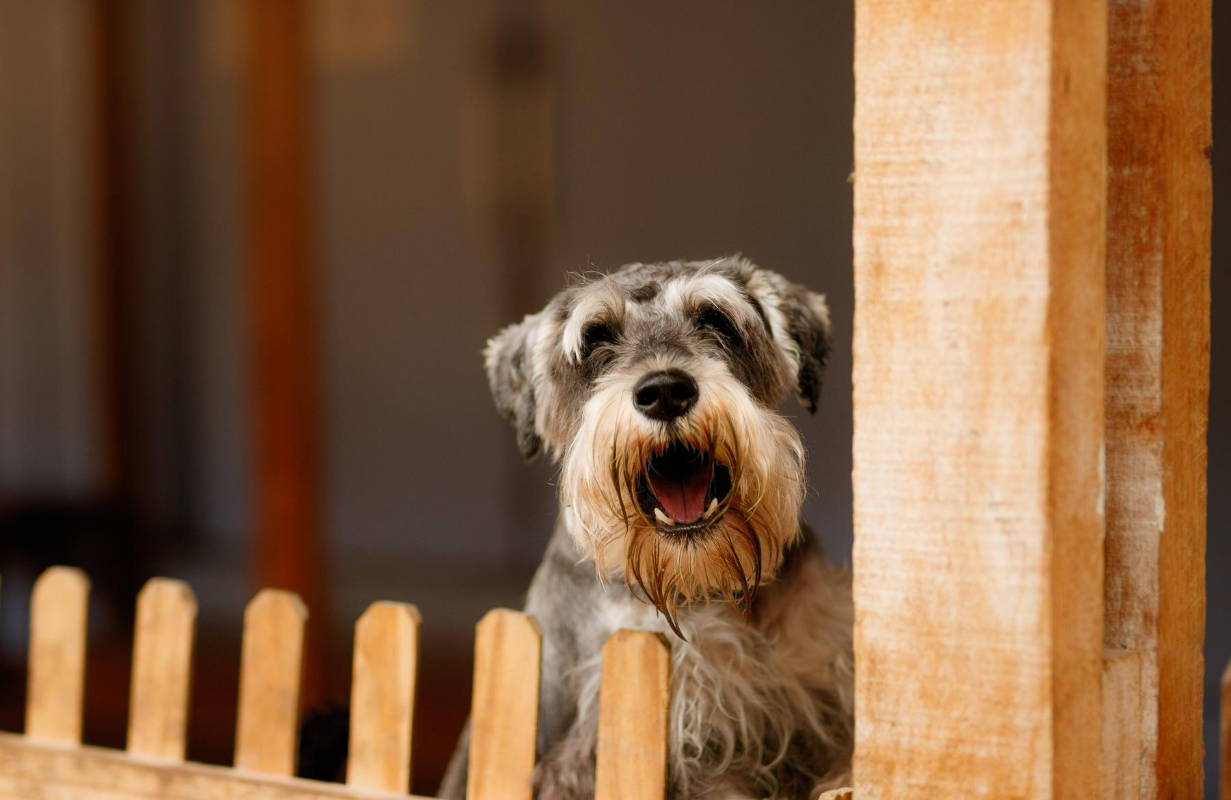Is your dog barking or howling when left alone at home?
Dogs have a lot to say. And unfortunately, sometimes they say it even if you’re not around to hear.
To understand how to stop a dog from barking when left alone, you have to understand what’s causing the negative behavior in the first place. Because while it might be frustrating (especially for your next-door neighbors), barking is a common problem with some pretty common causes. If you can address the reason that your pup is barking when left alone, you can also usually resolve it.
Below, we’ve outlined a few of the major culprits behind why your dog might be barking when they’re home alone — plus some quick tips for getting them to stop.
Reasons Dogs Bark When Left Alone
Your dog isn’t practicing his singing voice when he spends his days howling at the window or door. Instead, dogs who bark when they’re left alone are usually just expressing a need for more engagement, more attention, and more exercise.
Any time your pup exhibits not-so-good behavior when they’re alone, whether it’s barking, howling, chewing up your favorite shoes, or any other negative act, they’re telling you that they’re not fully content in their situation. In most cases, this means something pretty simple: they’re bored. It’s a common enough feeling even among humans, but unlike you, your dog can’t just open the door and take themselves for a walk or turn on the TV and binge-watch their favorite show.
As a caregiver, it’s up to you to give your dogs the tools he needs to be at his best behavior even when you’re not around. And to do it, you need to make sure that you’re providing plenty of outlets for all of that pent up energy.
How to Stop Your Dog From Barking When Home Alone
You know what they say: a tired dog is a good dog. Dogs who have all of their energy needs met are much less likely to bark when they’re left alone, which is good news for both you and your neighbors — and for your pup, too.
Of course, you can’t just stop in every hour to toss a frisbee around. So what’s the alternative? Here are some ways to help your dog work out excess energy before you leave and while you’re gone so that he spends his alone time snoozing, instead of screeching.
Go for a walk before you leave. Regardless of what time you have to head out the door, make sure that you schedule in time to take your dog for a walk before you do. Even if it’s just a stroll around the block, this gives him an opportunity to work out some mental and physical energy before spending time alone. It also helps establish a routine and gives you time to bond before you have to say goodbye.

Offer interactive toys that move by themselves. Interactive pet gaming devices like the Wicked Ball are automatic boredom killers that entertain your pets when you’re not around to do so yourself. They are designed to imitate the prey, giving your dog plenty of opportunity to run, explore, and play all day. Meanwhile, you get the peace of mind that comes with knowing they have something to keep them occupied and entertained (and quiet).
Hire a dog walker. If you’re going to be gone all day, hire a dog walker who can come midway through to check in on your pup and get him some exercise. Aside from just providing a potty break, this gives your pup time to work out his zoomies in a healthy, productive, and less vocal way. Don’t have any local dog walking businesses near you? Try a site like Rover or Wag! to search reputable walkers in your area.
Turn on some sound. You might bark too if you had nothing but silence all day. Many pet parents choose to put on the TV or radio for their dogs when they leave to provide some stimulation and mimic the sounds of others being home. There are specific dog-focused TV channels for this (such as DogTV or YouTube channels like Relax My Dog), but you could also put on something soothing like kids’ cartoons or classical music.
Give your dog a special treat before you go. Turn leaving time into treat time by giving your dog something special they only get when you’re not around, such as a Kong filled with peanut butter. This will keep him distracted as you head out the door, and will also help him see that maybe being home alone isn’t all that bad.
Consider a companion. Having another dog (or even a cat!) at home can help relieve a lot of your pup’s boredom. This is a big decision to make and shouldn’t be taken lightly, but if your dog is fond of other animals and you have room in your home, your budget, and your schedule for another pet, it may be worth adopting a companion for those long days when you’re out of the house.

Keep in mind that some dogs suffer from severe separation anxiety that requires professional care to address. If in addition to barking when left alone your dog is also engaging in highly destructive behaviors like scratching your front door to shreds or destroying your furniture, it’s a good idea to seek out some one-on-one advice from a trainer.
There’s no such thing as being a perfect pet parent, but if you approach your dog’s barking issue with compassion instead of anger, you’re doing a great job. With a little more attention and exercise — and some new ways to occupy their time while you’re gone — you should be able to stop the barking and get some much-needed peace and quiet.


